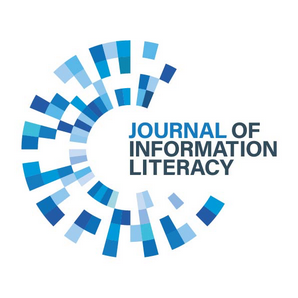Alison Hicks talks us through the Journal of Information Literacy’s 50 year celebration if Information Literacy.
I’m pleased to announce that the Journal of Information Literacy has joined the Information Literacy Group and the New Professionals Group in celebrating fifty years of information literacy with the publication of its newest special issue! Over a year in the making, this special issue unites think pieces from 17 sets of authors who each share their thoughts, frustrations and ideas about the past, present and future of information literacy. Selected to ensure broad geographic and sector-based representation, these authors also represent a variety of different career stages- some of whom may have just about been around to see the birth of information literacy and others for whom this has always been an established ‘thing’.
Each set of authors approached the ‘tiny challenge of writing something meaningful and provocative about information literacy in 2000 words’ in a variety of ways, ensuring that there is plenty to inspire, enjoy and contest. All papers are available as PDF and Word downloads from the journal website.
For readers with an historical bent, several authors have focused on the past fifty years of IL research, or the analysis of oversights and gaps within scholarship that has had lasting impact within the field.
- Andrew Shenton: Training school students in information evaluation. Reviewing the past, establishing the present and considering the future
- Geoff Walton: Investigating information literacy Fool’s errand or new message?
- Andrew Whitworth: Archives as the prologues of information literacy
- Alejandro Uribe-Tirado, Juan D. Machin-Mastromatteo: Beginnings of information literacy in Latin America A recognition of the pioneers
Other authors, however, have focused on oversights and gaps within existing scholarship, which will be of interest for readers looking to challenge unresolved issues in the present day.
- Vicky Grant: A creative future for information and digital literacy
- Jess Haigh: Critical information literacy. The challenge, the criticism, and the need for reflection and research
- Maura Seale, Karen Nicholson: Cruel optimism, or, this time will be different!
- Dijana Šobota: Rethinking the teleological essence of information literacy Academic abstraction or real-life action literacy?
Perhaps the most popular way of exploring the fiftieth anniversary of IL, though, was to future-gaze or to consider trends, reflect on key questions, and develop themes and areas of interest for future researchers, which will be of interest to readers interested in how IL might benefit from being more aligned with certain areas of study:
- nicholae cline, Jorge R. López-McKnight: before information literacy field notes on the end of IL
- Laura Saunders: Information literacy now Examining where we are to understand where we are going
- Silvia Vong: “Do as I say, not as I do…” A present (and future) concern about the pedagogy of hypocrisy and information literacy
Readers interested in social change will also enjoy the contributions from authors exploring how evolving information ecosystems require adaptations in how we understand key IL concepts.
- Alison Hicks: The negative spaces of information literacy. An alternative research agenda
- Noora Hirvonen: Information literacy after the AI revolution
- Hilary Hughes: Flourishing in an ocean of information. A futures vision for information literacy
- Elizabeth Hutchinson: Navigating tomorrow’s classroom. The future of information literacy and inquiry-based learning in the age of AI
- Annemaree Lloyd: Chasing information literacy into the wild. Questions for the Anthropocene epoch
In sum, authors have risen to the challenge of providing a snapshot of IL thinking, research, concerns and priorities at 50. My hope is that these pieces will challenge and inspire the next fifty years of IL thinking and drive us forward for the next fifty years.

